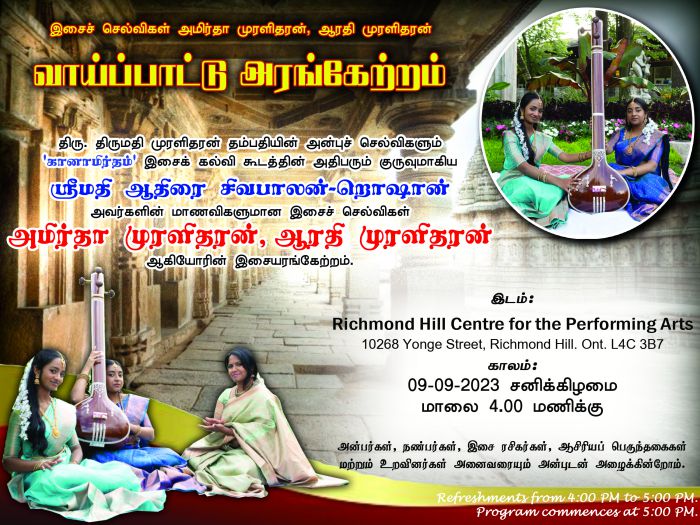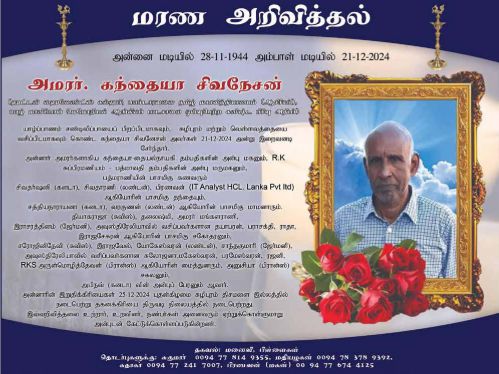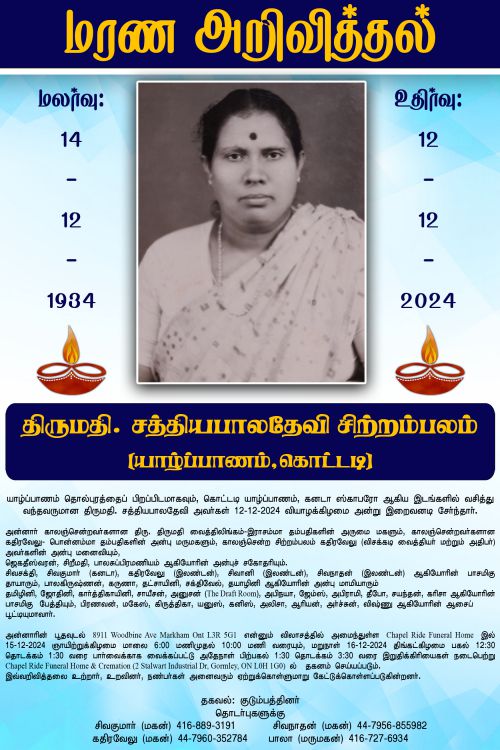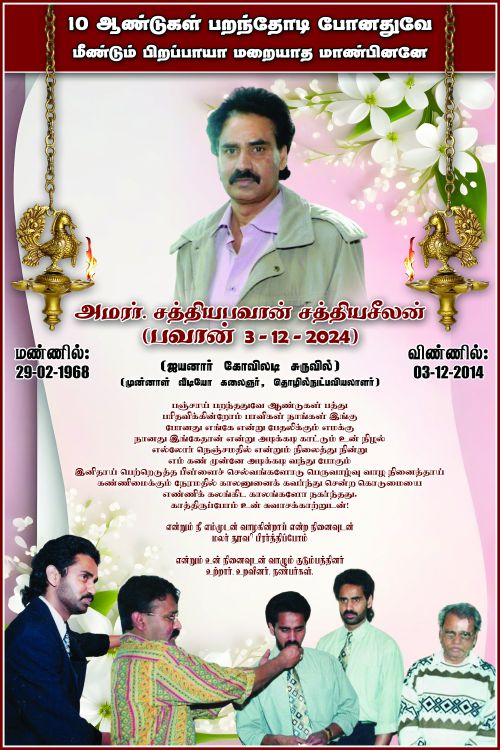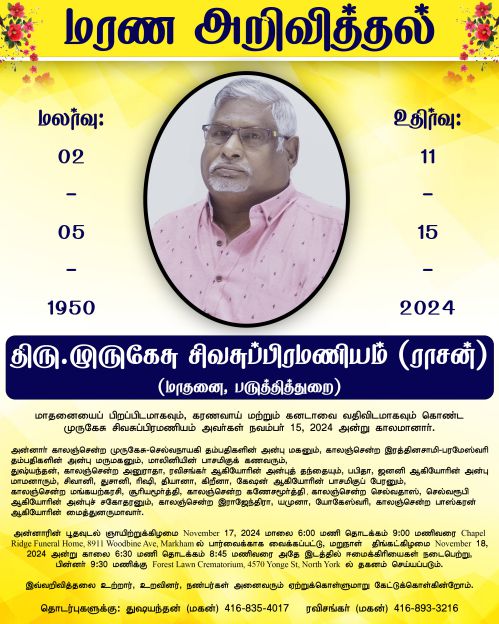Unprepared Sri Lanka officials put future of Rohingya Muslims life into uncertainty
Share

Siva Parameswaran
The unpreparedness of the Sri Lanka government in dealing with issues having international ramifications has been exposed with their handling of the Rohingya Muslim refugees who were rescued by war-affected Tamil fishermen off the coast of Mullaitivu.
Such unpreparedness came to light when the refugees were returned halfway back to Trincomalee while being escorted by police to the Mirihana immigration detention center in the Colombo suburbs. They were stopped at Habarana and sent back to Trincomalee on the same bus.
Even after being spotted on the 19th Morning and rescued by the Mullaitivu fishermen by mid-day and taken to Trinco harbor by the Sri Lankan Navy the same day night, the government has apparently not made arrangements to lodge them at the detention centers, in particular Mirihana, where normally illegal migrants are detained.
Even by Saturday (21) evening, it is not clear as what next or where the distressed refugees will be taken for further action by the government, once they are moved out of a school premises in Trincomalee where they are temporarily put up.
Deputy Minister of Foreign Affairs and Foreign Employment Arun Hemachandra says government needs more time to deal with the issue.
The lawmaker from the Trincomalee district and In a reply to a query posted by a local journalist on Facebook, has answered in Tamil saying the immigration officials have sought some time and once judicial inquiries are over and accommodation issues are sorted out they would be handed over to them in a day or two.
But the statement from his senior minister and government spokesperson Vijitha Herath makes it amply clear the government was aware of the situation by Thursday which reflected in his reply at the cabinet briefing. He assured the Rohingya refugees would be treated according to international conventions adding it needs further discussions as it is a matter that concerns not only Sri Lanka.
“As soon as the news came to our ministry we took some urgent steps regarding that, not only our ministry, the defence ministry, and other officials also and, we are treating them according to our international conventions and we are giving them medicines, food, and every facility. We are hoping to take a permanent decision regarding that matter because it is not only our internal matter but also an international matter, therefore we have to take some steps further more. But we have already taken urgent actions regarding them and treated them well,” Foreign Minister Herath told journalists in Colombo.
His deputy Arun Hemachandra is quoted by local journalists as saying the immigration officials are expected to talk to them on Monday (23) to decide the next course of action.
On Thursday (19) he had assured that the government has commenced coordinating arrangements with bodies including the UN.
“Currently the security forces, health services, ministry of public administration, ports authority, foreign ministry as well as the UN High Commission for Refugees (UNHCR) is jointly involved according to national and international law,” said Arun Hemachandra.
He added that six including four children have died during the sea voyage.
Those Rohingyas rescued from the rickety boat and taken to Trincomalee by the Sri Lankan Navy are lodged in a local school pending any decision by the authorities.
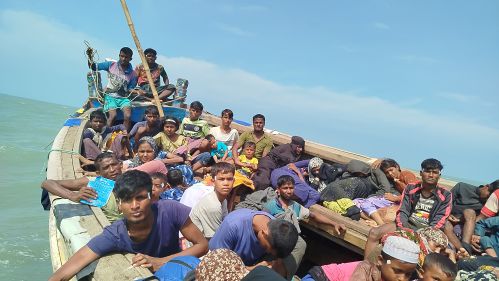
According to the initial information from those who traveled in the boat, their journey began a fortnight ago before being spotted and rescued by the Mullaitivu Tamil fishermen on the 19th of December.
The Rohingya refugees now staying in the Jamalia school in Trincomalee say 120 of them left from the Rakhine state in Myanmar on the 4th of December in three fishing boats.
Two boats were damaged en route and all were forced to shift and travel in a single boat that was found drifting in Sri Lankan waters by the Mullaitivu fishermen.
Among the 120 who set sail initially, according to them, five people from two families died on the way and were thrown into the sea, while the remaining 115 continued their journey in search of safety.
Among the remaining 115 refugees staying in Trincomalee 39 are men, 27 women including one pregnant and 49 children say local journalists who visited them.
Even though it was easy to offload them at Mullaitivu and take them to Trincomalee by road in less than an hour, the Navy and the security agencies preferred to continue their arduous journey for another five hours in the same rickety boat all the way to Trinco harbor.
Once they landed in the Trincomalee harbor, they were handed over to the District Secretary after a medical examination by a team of doctors.
The government said on Thursday (19) that needed facilities would be offered to all of them. Even after saying so, they were sent back halfway as they were being taken to Mirihana.
Meanwhile, a local NGO –AHAM Humanitarian Resource Center in Trincomalee organized food and drinking water for them when they were housed in tents immediately upon their arrival.
The district Magistrate Arjun Ariyaratnam visited the Ashroff Jetty where they were initially accommodated made an on-the-spot survey and inspected the fishing vessel they travelled.
After his assessment, the Magistrate ordered them to be shifted to the Mirihana detention center on Saturday (21). The Magistrate also ordered 11 persons suspected to have steered the boat to be remanded in judicial custody.
However, in what could be perceived as contempt of court the refugees were turned back at Habarana.
Local journalists say the police who escorted those ordered to be taken to the Mirihana detention center from Trincomalee were brought from Habarana after being informed to do so by Immigration Department officials. It is not clear whether a new court ruling was delivered.
Rohingya Muslim refugees have earlier been attacked in Sri Lanka. In 2017 a mob led by Buddhist monks and Sinhala extremists pelted stones at a United Nations shelter on the outskirts of the capital, forcing police to escort them to safety. No one has been held accountable so far.
A few of those refugees who could speak in broken Hindi language shared their ordeal and life back in Myanmar.
“We came here because we have been facing a lot of problems in Burma for a long time. Fighting is going on in Rakhine state. Constant bombing is also happening. Due to this the public are very scared. We are very disturbed and people keep on dying”.
They added despite their distressed situation, they were left with no option but to escape to save their lives.
“The situation is becoming very bad and we felt we cannot live here. So we pooled in some money and bought this boat and left the country. Because we are not being recognized and beaten up also day by day we are being killed”.
Rohingya people are Muslims and a minority in the Rakhine state in Myanmar which is ruled by the Military. Consistent attacks against the Rohingyas since 2017 have forced them to flee Myanmar for safety fearing for their lives.
More than a million have fled the country since then. The UN estimates close to another million Rohingyas have fled Myanmar and have sought refuge in neighbouring Bangladesh.







